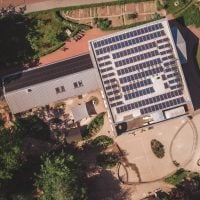Deadline: 28-Jul-23
The European Commission (EC) is soliciting concept notes for the Human Rights and Democracy Program.
Priorities
- The Action Plan on Human Rights and Democracy (2020 – 2024) establishes five lines of action that are interrelated and mutually reinforcing:
- Protect and empower people;
- Build resilient, inclusive and democratic societies;
- Promote a global system of human rights and democracy;
- Safeguard fundamental freedoms, including seizing the opportunities and meeting the challenges of new technologies and digital technologies; and
- Achieve the goals set by working together.
Objectives
The specific objectives of this call for proposals are:
- Advocate for public policies on prevention, family care, search and investigation of cases of disappearance and forced disappearance of persons;
- Considering the above, the following lines of work have been established to be developed within the framework of objective 1 of this call:
- In coordination with the authorities in charge, to influence public policies so that Mexico advances in compliance with the recommendations issued by international organizations on the disappearance of persons.
- Advocate for public policies in order to harmonize and implement the legal framework at the federal and state levels regarding the disappearance of persons, in accordance with international standards,
- Advocate for public policies in order to create programs, mechanisms, and standardized protocols at the federal, state, and local levels that prevent the disappearance of persons, allow the rapid search for disappeared persons, including coordinated, efficient, and effective investigations into disappearances.
- Considering the above, the following lines of work have been established to be developed within the framework of objective 1 of this call:
- Advocate for public policies regarding access to justice and impunity;
- Considering the above, the following lines of work have been established to be developed within the framework of objective 2 of this call:
- Strengthening the role of civil society in monitoring and responding to gross violations and abuses of human rights;
- Increased support for evidence-based accountability for human rights violations solid;
- Enhancement of victim-centred, trauma-sensitive, gender-sensitive approaches, including gender differentiated and human rights-based approaches in the fight against impunity;
- Considering the above, the following lines of work have been established to be developed within the framework of objective 2 of this call:
- Advocate for public policies on human rights and new technologies.
- Considering the above, the following lines of work have been established to be developed within the framework of objective 3 of this call:
- Advocacy in public policies in order to promote measures for the protection of the right to privacy and data protection, urging and supporting the authorities to adapt their relevant national, state and local legislation in terms of transparency and proportionality of access government to personal data in accordance with international standards;
- Advocacy in public policies in order to support the efforts of the authorities to increase and improve the access of their citizens to the Internet and digital communications, as well as their safe use;
- Influence on public policies that promote unhindered, uncensored and non-discriminatory access to ICTs and online services for all, in accordance with international standards;
- Considering the above, the following lines of work have been established to be developed within the framework of objective 3 of this call:
- Advocate for public policies regarding the eradication of trafficking in girls, boys and teenagers.
- Considering the above, the following lines of work have been established to be developed within the framework of this call:
- Prevention:
- Mobilize public opinion to promote accountability to citizens regarding the concrete implementation of the recommendations issued by international organizations to the federal and state executive and judicial authorities on trafficking in children and adolescents in Mexico.
- Design and implement campaigns and measures to raise awareness and prevent the crime of trafficking in public places (posters in hotels, restaurants, bars, shops, public transport, gas stations, shops, etc.).
- Attention:
- Make an impact on the design of standardized measures and protocols for prevention, attention and repression of trafficking in children and adolescents at the federal, state and local levels.
- In application of the measures and protocols mentioned above, design and implement training programs for public officials (police, prosecutors, judges, staff members of the social and health services) in charge of the prevention, care and repression of human trafficking. girls, boys and adolescents.
- Repair:
- Advocate for the creation of a federal fund to assist victims in accordance with the Law.
- Advocate for the creation of a program for the social, economic and health rehabilitation of the victims.
- Prevention:
- Considering the above, the following lines of work have been established to be developed within the framework of this call:
Funding Information
- The total indicative amount allocated to this call for proposals amounts to EUR 745,000 to be financed under the 2022 budget and an indicative amount of EUR 2,510,000 to be financed under the 2023 budget, subject to the availability of funds foreseen in the general budget of the European Union for 2023.
- The subsidies requested within this call for proposals will be between the following minimum and maximum amounts:
- Minimum amount: EUR 600,000
- Maximum amount: 800,000 EUR
- Duration: The initial expected duration of an action may not be less than 36 months nor more than 42 months.
Results
Common results for all objectives:
- Development and implementation of advocacy strategies on the modernization of legislation and public policies based on international standards;
- Development and implementation of strategies to monitor the implementation of legislation and policies public;
- Strengthening the capacities for action of the next of kin of the victims and of the civil society groups and organizations that support them. For example, technical, legal and financial accompaniment of the next of kin of the victims before the authorities;
- Strengthening the security of people who work in the scope of the objectives of this call: victims, defenders, family members, groups and civil society organizations, with special attention to those people who work in isolation or in remote areas of the country, including the formation of support networks and psychosocial assistance;
- Preparation and dissemination of reports on human rights violations and recommendations for the competent authorities within the framework of the specific objectives of this call.
Location: The actions will be executed in Mexico.
Eligibility Criteria
- Main Applicant
- To be eligible for a grant, the lead applicant must:
- be a legal person; and
- not for profit; and
- be a civil society organization
- be established in Mexico, in a Member State of the European Union
- To be eligible for a grant, the lead applicant must:
- Co-solicitors
- Co-applicants will participate in the design and implementation of the action, and the costs they incur will be eligible in the same way as those incurred by the lead applicant.
- Co-applicants must meet the eligibility criteria applicable to the lead applicant itself.
- Co-applicants must sign the mandate form.
- If the grant contract is awarded, the co-applicants (if any) will become beneficiaries of the action (together with the coordinator).
- Affiliated Entities
- The main applicant and its co-applicants may act with affiliated entities.
- Only the following entities may be considered entities affiliated with the lead applicant or co-applicants:
- Only entities that have a structural link to the applicants (ie the lead applicant or a co-applicant), especially if the link is legal or capital.
- This structural link covers mainly two aspects:
- Control on the annual financial statements, consolidated financial statements and other related reports of certain types of companies.
- Thus, the affiliated entities of an applicant may be:
- Entities controlled directly or indirectly by the applicant (subsidiaries or first level subsidiaries). They can also be entities controlled by an entity controlled by the applicant (second level affiliates), and the same applies to the following levels of control.
- Entities that directly or indirectly control the applicant (parent companies). In addition, they may be entities that control an entity that in turn controls the applicant.
- Entities under the same direct or indirect control as the applicant (associated companies).
- Membership, i.e. the applicant is legally defined as, for example, a network, federation or association in which the proposed affiliated entities also participate, or the applicant participates in the same entity (for example, a network, federation or association) than the proposed affiliated entities.
For more information, visit European Commission.









































